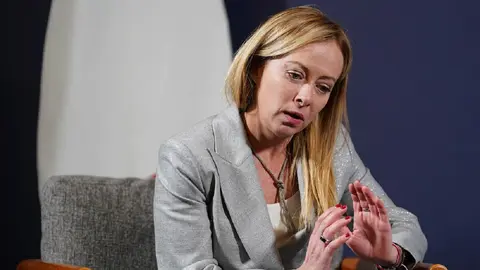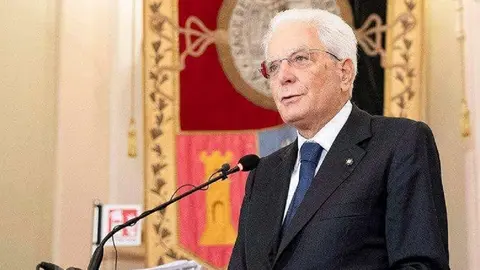On constitutional reform in Italy

A few months ago, the Meloni government, "in carica" since 22 October 2022, presented a constitutional reform project that sought, fundamentally, to make the terms of office of the head of the Executive (known there as "president of the Council of Ministers" or "premier") last for the five years of each legislature. In practice, this would mean bringing to the national level what already happens at the local level, since mayors, when they win municipal elections, are guaranteed a five-year term of office. The proposal of the transalpine executive was well received, with support even outside the "maggioranza" (such as that of Italia Viva and Azione), but for the time being it has remained there.
Presumably, as soon as the General State Budget for 2024 is definitively approved (now that the new fiscal rules to be applied in the reborn "Stability and Growth Pact", suspended for the past three years, are being negotiated), President Meloni will take up the matter again and, from there, will enter fully into the parliamentary debate. Two questions remain: is this reform really necessary? And is it likely to succeed?
The last time a full-fledged constitutional reform was attempted (because the "taglio" of parliamentarians in September 2020 in no way altered the balance of power) it ended in complete failure: it was carried out by a very young Matteo Renzi, president of the Council of Ministers between February 2014 and December 2016, who saw how his attempt to transform the Senate into a "Chamber of Regions" was only supported by 41% of voters, compared to 59% who voted "no". As is well known, Renzi resigned immediately and was succeeded by Paolo Gentiloni, who had been foreign minister in the executive headed by the Tuscan politician.
Some analysts have argued that such a reform is feasible because, moreover, it would barely affect the constitutional architecture: only three or four articles of the 1948 Constitution would be affected. But the reality is that this reform would be much more far-reaching, far surpassing Matteo Renzi's almost a decade ago. And we shall see why.
Firstly, the figure of the President of the Republic, the first "carica" of the state, would have to be changed. Among other prerogatives, he has the power to decide who should form the government: now, with someone elected at the ballot box, it would not be necessary to go through the consultation process with the head of state, as it would be a direct election of the head of government. Nor could the President of the Republic, after the approval of the constitutional reform, decide to bring forward elections, since the President would have a guaranteed five-year term of office. Not to mention the unofficial role played until now by the tenant of the Quirinal Palace, who, with the real power to carry out a "pre-incarceration" (i.e., he or she does not put anyone in charge of forming a government until the composition of the Executive has been "approved"), has a fundamental decision-making power in certain ministries, such as the Economy and Finance, Defence, Interior and Justice.
Let us recall, in this regard, that the current President of the Republic (Sergio Mattarella) refused to appoint a person from the Five Star-League coalition to form a government in May 2018, while they maintained that the head of Economy and Finance would be Paolo Savona, a known enemy of the single currency: until the name of an "orthodox" (Giovanni Tria, Professor of Economics at Tor Vergata University) appeared for that portfolio, and Savona moved, in turn, to the second-tier Ministry of "European Affairs", the Sicilian jurist and politician did not give the "green light" to the new government, which became a reality in the first week of June 2018.
Moreover, Mattarella played a decisive role in putting the Roman Meloni in charge of forming a government: Tajani, a well-known pro-European, had to take charge of Foreign Affairs; Giorgetti, a man with very good relations with Daniele Franco and Mario Draghi, had to agree to take charge of Economy and Finance; and Salvini was left with the desire to return to the Interior, having to agree to head the Infrastructure portfolio. In return, Mattarella, in a clear gesture towards the young Meloni, accepted that a person of his utmost confidence, Guido Crossetto, despite the fact that he was at the time president of the Defence Industry Association (which could have resulted in a clear "conflict" of interest), was finally appointed Minister of Defence for the fundamental reason that Meloni needed him in the Executive.
Now all this would disappear: the President of the Republic would assume the so-called "ceremonial role" (pure institutional representativeness) and the new "prime minister" would have a completely free hand in shaping his cabinet. And in the event that, for whatever reason, he had to leave his post, it would be a member of the "maggioranza" who would assume the presidency of the Council of Ministers.
Another change that this reform would entail would be the transition to a majority electoral law as opposed to the importance of the current proportional one: whoever wins, to the government; and whoever loses, to the opposition. This is exactly what has been happening in France since the establishment of the Fifth Republic, which means that each president of the Republic (with much more power than his prime minister) assumes a full mandate that for decades was up to seven years and that, since the times of Nicolas Sarkozy (since the previous president, Chirac, did have a first mandate for a seven-year term), who was head of state between 2007 and 2012, the first authority of the French Republic is now elected for a five-year term with the possibility of a single re-election.
All this would mean giving a lot of power to the president of the Council of Ministers, and in a country that has not wanted to do away with having not one but two chambers with equal legislative capacity in 75 years of republican life (the Lower House, now with 400 members, and the Upper House, which has gone from 315 to 200), it seems difficult to return to an executive power that is stronger than the legislative, something that has not happened since the times of Mussolini.
We shall see what happens with the Meloni government's reform, but it seems to be more "smoke and mirrors" than anything else. Not only because of the slow pace that the current government is giving to this issue (it has not even appointed a specific person for it, as opposed to Renzi who appointed Maria Elena Boschi as Minister of Constitutional Reforms to lead this specific reform), but because Meloni, who in 2024 will face his second full year in office, needs certain elements of "distraction" from what he plans to implement. And that is none other than next year's State Budget.
Because what many do not know at the moment is that Meloni has followed point by point the "road map" set by the European Union: substantial reduction in public spending (the public accounts deficit should, in principle, be "0", as a way of being able to lower the high level of indebtedness); sharp tax rises; elimination of the so-called "social shield" (created to alleviate the causes of the "coronavirus"); disappearance of the "citizens' income"; and reduction of public debt from 144% of GDP to 139-140% in just one year.
It is to be expected that, in a country where the International Monetary Fund is currently forecasting growth of no more than 0.7% by 2024 (compared to the 8.3% achieved by the Draghi government in 2021), social discontent will grow. And right now Meloni's popularity is at an all-time high (he has support of around 29% of the electorate, compared with 19% for the Democratic Party, the second most popular party), but it remains to be seen what will happen in the coming months: in addition to various elections to choose the government of some minor regions, it remains to be seen whether Meloni will continue to maintain this level of support when the elections to the European Parliament take place in the first week of June 2024. And all this with his deputy prime minister Salvini bringing together the anti-European vote, and with Senator Renzi aggregating all the centrist elements (Italia Viva, Azione, Piu Europa, etc.) into a single coalition.
Only one thing is clear: if the constitutional reform is approved in the Chambers, which Meloni can achieve because at the moment he has a large majority (the approval of this reform in Parliament), he would not, however, have enough votes to avoid a "referendum", and we already know what happened in the case of Renzi in December 2016. He lost it comprehensively and since then he has not been president of the Council of Ministers again, and his party (Italia Viva) is not able to exceed 3.5% of voting intentions.
Will Meloni go ahead with the constitutional reform that no one has managed to achieve so far? He would do better to think about changing the system for electing the president of the Republic, where, of the last three times a new head of state has had to be elected, he has failed twice (2013 and 2022) and only managed to find a new tenant of the Quirinal in January 2015. That was when Sergio Mattarella almost managed to emerge with a qualified majority and, do you know who the "king-maker" was? The same Matteo Renzi who has already set course for the European institutions.
Pablo Martín de Santa Olalla Saludes is a lecturer in the Faculty of Communication and Humanities at the Camilo José Cela University and author of the book "Italy, 2028-2023. De la esperanza a la desafección" (Madrid, Liber Factory, 2023).



